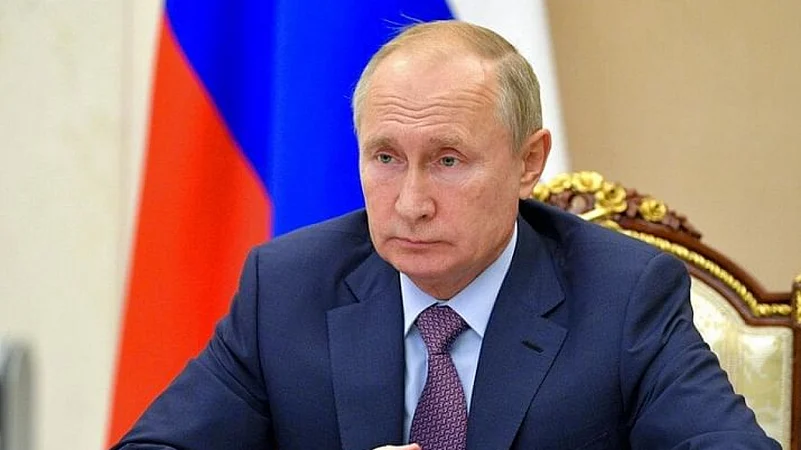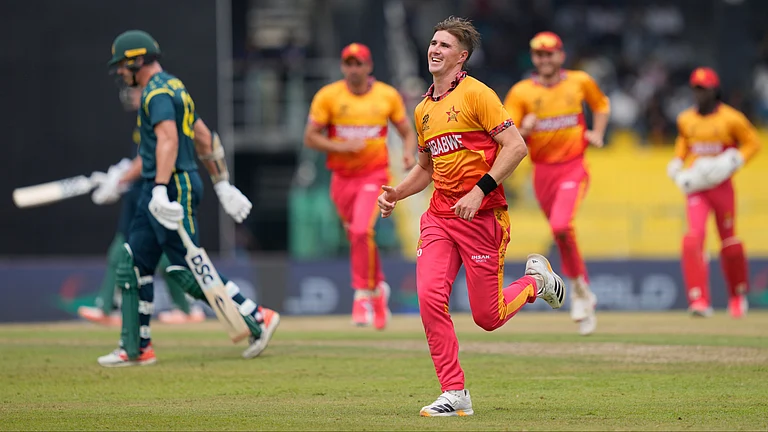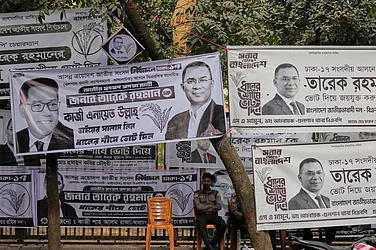Ahead of a key visit to China amid soaring military tensions with the West over Ukraine, Russian President Vladimir Putin has strongly criticized the diplomatic boycott of the Beijing Winter Olympics by some countries led by the US.
He also added that attempts to politicise sports for selfish interests go against the Olympic Charter.
Chinese President Xi Jinping is due to declare open the 17-day-long 2022 Beijing Winter Olympics on Friday.
Putin, Pakistan Prime Minister Imran Khan and 30 heads of state and international organisations are due to attend the opening ceremony, which is being boycotted diplomatically by the US, EU and several other countries to highlight the allegations of human rights violations against Uyghur Muslims in China's restive Xinjiang province.
In his article carried by the official Xinhua news agency on Thursday ahead of his visit, Putin said, “Sadly, attempts by a number of countries to politicise sports for their selfish interests have recently intensified."
“This is fundamentally wrong and contrary to the very spirit and principles of the Olympic Charter”, he said.
“The power and greatness of sports are that they bring people together, give moments of triumph and national pride as well as delight with fair, just and unwavering competition. And these approaches are shared by most of the countries participating in the international Olympic Movement”, Putin said in the signed article.
Beijing says its security crackdown in Xinjiang is aimed at the separatist East Turkistan Islamic Movement (ETIM) - an affiliate of the Al-Qaida faction operating in Xinjiang. The labour camps have been called regular job training.
Chinese officials say Beijing attaches great importance to Putin’s visit, as it is aimed at re-enforcing solidarity and strategic ties between the two countries in the backdrop of the growing adversity they faced from the US, EU and other western countries.
The Xinhua news agency said China and Russia's “ever-growing friendship is not flourishing accidentally, but has been nurtured by the two leaders' common perspective on the importance of bilateral ties and on international issues”.
Putin's visit to Beijing comes as the US and NATO have been strengthening defenses around allies in Eastern Europe since late last year. The tensions regarding suspected annexation of Ukraine by Russia have ratcheted up in the last week, with US President Joe Biden ordering 2,000 US-based troops to Poland and Germany, and moving 1,000 more from Germany to Romania. All diplomatic talks have failed so far.
Skirting any references to military tensions with Ukraine over the Russian Federation amassing over 100,000 troops in the Ukraine border sparking speculation that Moscow may be bracing for the invasion of the member of the former Soviet bloc, Putin said he will “thoroughly discuss” key international and regional issues with Xi.
Putin said, “during the upcoming visit, President Xi and I will thoroughly discuss key issues on the bilateral, regional, and global agendas. It is symbolic that our meeting will take place during the Spring Festival - the Chinese Lunar New Year."
“Certainly, an important part of the visit will be a discussion of relevant international topics. Foreign policy coordination between Russia and China is based on close and coinciding approaches to solving global and regional issues”, he said.
Russia and China play an important stabilising role in “today's challenging international environment, promoting greater democracy in the system of international relations to make it more equitable and inclusive”, he said.
“We are working together to strengthen the central coordinating role of the United Nations in global affairs and to prevent the international legal system, with the UN Charter at its centre, from being eroded”, Putin said.
Also Russia and China are actively cooperating on the broadest agenda within BRICS (Brazil, Russia, India, China and South Africa), the Russia-India-China (RIC) framework, the Shanghai Cooperation Organization as well as other multilateral frameworks, he said.
In his lengthy article, Putin outlined the burgeoning cooperation in a host of areas including military, space, and industry between the two countries which are on course to strike close strategic partnership short of the military alliance to ward off threats from the US.
Often termed as reluctant allies because of Moscow’s own reservations over the rapid increase of China’s global strategic influence especially in Eurasia, Russia’s close neighbourhood, the China-Russia relationship has been frowned at by EU officials who aver that it is helping Beijing to ward off global adversity.
Last month German Navy Chief Vice Admiral Kay-Achim Schonbach resigned following an uproar over his call to the US and EU to tone down tensions with Russia to isolate China.
Speaking at an interactive session at the Manohar Parrikar Institute for Defence Studies and Analyses (MP-IDSA) on January 21 in New Delhi, Schoenbach was quoted as saying that "does Russia really want a small and tiny strip of Ukraine soil, integrate the country. No, this is nonsense. Putin is probably putting pressure because he knows he can do it, and he splits EU opinion. What he really wants is respect. "
“Russia is an old country, Russia is an important country. Even India, Germany need Russia. we need Russia against China…” Schoenbach said.
He had resigned after his remarks evoked strong reaction from Ukraine which is banking on the US and EU support to avert Russian invasion. The diplomatic boycott of the Winter Olympics does not prevent US and other Western athletes from taking part in the Games, which are being held under strict anti-pandemic restrictions. In his recent interview to Russian media, President Xi said, "We share similar views on the international landscape and approaches to national governance".
"Most importantly, we share a high degree of consensus on the strategic significance of the China-Russia relationship and therefore the same resolve and desire to deepen and sustain its growth", he said.


























